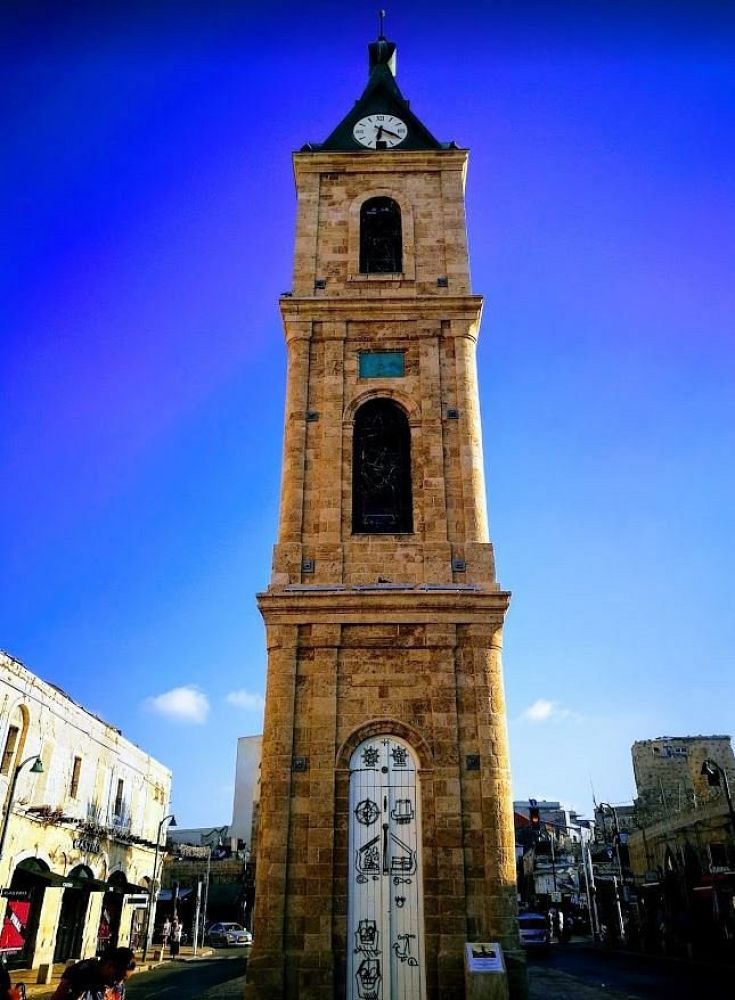

The Jaffa Clock Tower stands proudly as a historic landmark in the ancient port city of Jaffa (Yafo), now part of the vibrant urban landscape of Tel Aviv, Israel. The tower was erected in 1903 to honor the silver jubilee of Sultan Abdul Hamid II's reign of the Ottoman Empire. It is one of seven clock towers built in Palestine and among the over a hundred clock towers built throughout the Ottoman Empire during that period.
Constructed from limestone, the Jaffa Clock Tower originally featured four clocks facing the cardinal directions. Its design reflects a mix of architectural styles, including elements typical of Ottoman architecture. This eclectic architecture speaks to the diverse cultural influences present in Jaffa throughout its long history.
Tourism in Jaffa has evolved significantly over the years. With a history that predates biblical times, Jaffa has long attracted travelers and pilgrims. However, the significant growth in tourism came with the development of the state of Israel and the subsequent integration of Jaffa into the Tel Aviv municipality in 1950. The historic and cultural richness of the city, along with its picturesque views of the Mediterranean, has made Jaffa a prominent tourist destination.
Jaffa's restoration projects, which began in the late 20th century, played a pivotal role in resurrecting the city as a hub for tourism. The Old City of Jaffa, with its ancient alleys and buildings, has been meticulously preserved and transformed into a vibrant area filled with galleries, boutiques, restaurants, and cultural venues.
In recent years, Jaffa has seen a new trend emerge with the combination of its historical charm and modern luxury. A proliferation of boutique hotels, gourmet dining establishments, and contemporary art galleries have made the city an attractive destination for both culture enthusiasts and luxury travelers.
Notably, Jaffa's flea market area has become a trendy spot for nightlife and dining, blending the old with the new. The traditional market by day transitions into a bustling, hip scene by night, with numerous bars and restaurants offering a taste of local and international cuisine.
The city has also seen growth in cultural tourism due to its rich multicultural heritage. Visitors are not only interested in Jaffa's past but are also eager to engage with its present-day artistic and cultural scene, including the Arabic-Hebrew theater located in the city, which symbolizes Jaffa's mixed heritage.
In summary, Jaffa's tourism industry continues to flourish, drawing from its historical legacy while embracing contemporary trends. The Jaffta Clock Tower remains a historical testament to the city's enduring appeal, anchoring a cityscape that is ever-evolving and continuously attracting tourists from around the world.